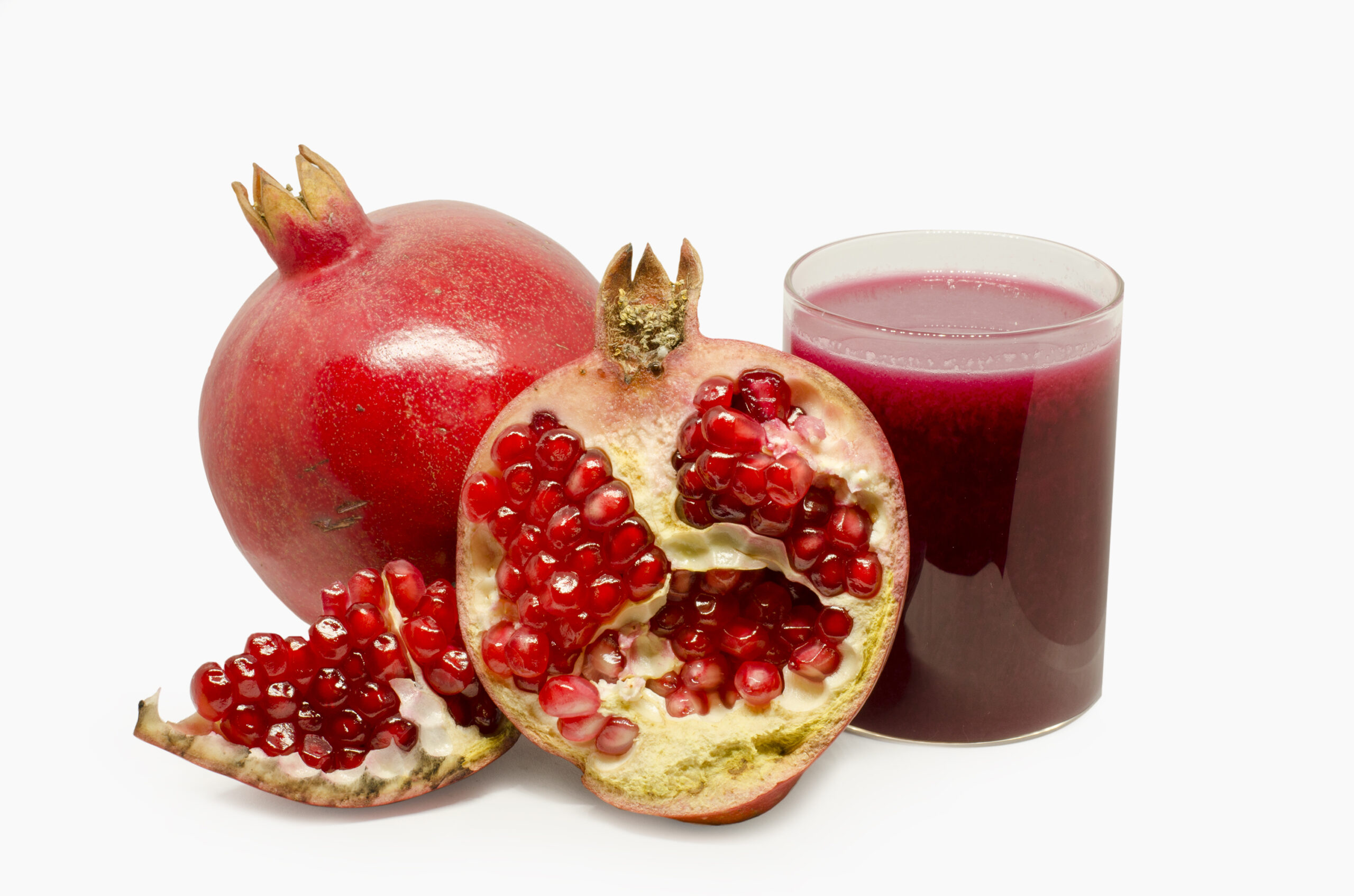Health Benefits of Pomegranates
What are the health benefits of pomegranates?
Pomegranates offer several health benefits when consumed as part of a balanced diet:
- Rich in Nutrients: Pomegranates are packed with vitamins (such as vitamin C, vitamin K, and some B vitamins) and minerals (such as potassium and copper), as well as fiber and antioxidants.
- Heart Health: The antioxidants in pomegranates, particularly punicalagins and anthocyanins, can help reduce inflammation and oxidative stress in the body, which may lower the risk of heart disease.
- Antioxidant Properties: Pomegranates are rich in antioxidants, which help protect cells from damage caused by free radicals and may reduce the risk of chronic diseases such as cancer and Alzheimer’s disease.
- Anti-Inflammatory Effects: Some studies suggest that the antioxidants and other compounds in pomegranates may have anti-inflammatory effects, which could help reduce inflammation in the body.
- Blood Pressure: Pomegranate juice has been shown to lower blood pressure, which is a risk factor for heart disease and stroke.
- Cancer Prevention: Some studies suggest that pomegranate extract may help prevent the growth of cancer cells, particularly in breast and prostate cancers.
- Digestive Health: The fiber in pomegranates can help promote healthy digestion and prevent constipation.
- Memory and Brain Health: Some research indicates that pomegranate juice may improve memory and cognitive function, as well as protect against neurodegenerative diseases like Alzheimer’s and Parkinson’s disease.
- Skin Health: The antioxidants in pomegranates can help protect the skin from damage caused by UV rays and pollution, and may promote collagen production for healthy skin.
- Antimicrobial Properties: Pomegranate extract has been shown to have antimicrobial properties, which may help protect against certain types of bacteria and viruses.
Overall, pomegranates are a nutritious fruit that can be a healthy addition to your diet. They can be enjoyed fresh, juiced, or used in cooking and baking to add flavor and nutritional value.
What are the health risks of pomegranates?
Pomegranates are generally safe for most people when consumed in moderation as part of a balanced diet. However, there are a few potential health risks associated with pomegranates:
- Allergic Reactions: Some individuals may be allergic to pomegranates, which can cause mild symptoms such as itching and hives, or more severe reactions such as anaphylaxis. People with allergies to other fruits may be more likely to have an allergic reaction to pomegranates.
- Interaction with Medications: Pomegranate juice may interact with certain medications, including some statins, blood pressure medications, and anticoagulants. Pomegranate juice can interfere with the metabolism of these medications, potentially leading to increased or decreased levels in the bloodstream.
- Stomach Upset: Some people may experience digestive issues such as bloating, gas, or diarrhea from consuming pomegranates or pomegranate juice, especially if consumed in large quantities.
- High Caloric Content: Pomegranates and pomegranate juice are calorie-dense, so excessive consumption can contribute to weight gain if not eaten in moderation.
- Kidney Stones: Pomegranates are high in oxalates, which can contribute to the formation of kidney stones in susceptible individuals. People with a history of kidney stones may need to limit their intake of pomegranates.
- Blood Sugar Levels: While pomegranates have a low glycemic index, consuming large amounts of pomegranate juice may cause a rapid rise in blood sugar levels, which can be a concern for individuals with diabetes.
- Pesticide Residue: Like other fruits, pomegranates may contain pesticide residue, especially if not organically grown. Washing pomegranates thoroughly before eating them can help reduce pesticide exposure.
Overall, pomegranates are a nutritious fruit that can be a healthy part of your diet. However, individuals with allergies, digestive issues, or concerns about medication interactions should consume pomegranates with caution and consult with a healthcare professional if they have any concerns.




